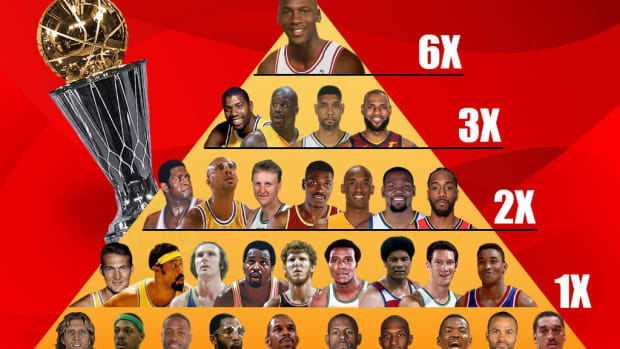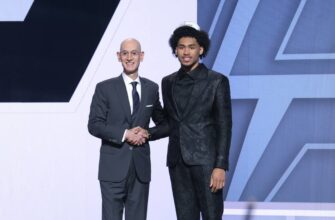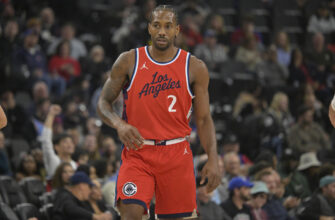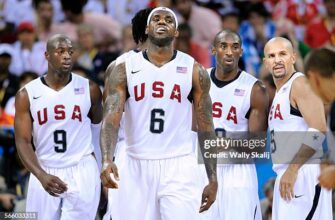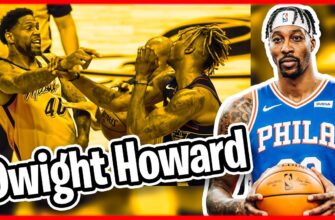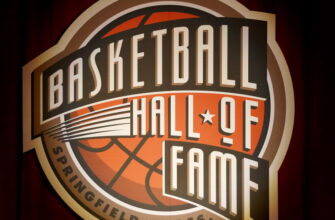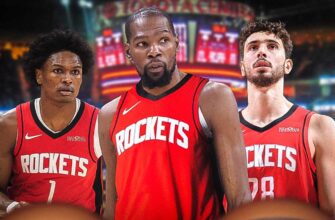The Western Conference Semifinals between the Denver Nuggets and Oklahoma City Thunder in 2025 presented a compelling matchup: the likely top two finishers in the NBA MVP voting, Shai Gilgeous-Alexander and Nikola Jokic.
Gilgeous-Alexander had a stellar regular season, averaging 32.7 points, 6.4 assists, and 5.0 rebounds, leading Oklahoma City to an impressive 68-14 record, best in the league. Jokic, already a three-time MVP, also delivered one of his most statistically dominant seasons, posting career highs in points (29.6) and assists (10.2) per game, alongside 12.7 rebounds.
This series marked the eighth instance since 1990 where the top two players in MVP voting faced each other in a playoff series. Five of these encounters occurred in the NBA Finals, with Michael Jordan involved in four of them. Historically, the team featuring the MVP winner has prevailed in five of these matchups.
Let`s take a look back at each NBA playoff series since 1990 featuring the top two vote-getters for the MVP award.
Russell Westbrook vs. James Harden, 2017
MVP: Russell Westbrook, Oklahoma City Thunder
Runner-up: James Harden, Houston Rockets
Series results: Rockets win 4-1
Russell Westbrook, the last Thunder player to win MVP before Gilgeous-Alexander, averaged a remarkable triple-double for the season. James Harden also had an outstanding year with averages of 29.1 points, 11.2 assists, and 8.1 rebounds.
These former teammates met in the first round, with the third-seeded Rockets securing a victory in five games. Despite the series loss, Westbrook put up huge numbers, averaging 37.4 points, 11.6 rebounds, and 10.8 assists. Harden countered with 33.2 points per game, making this one of only two times since 1990 the MVP runner-up has defeated the MVP winner in a playoff series.
Stephen Curry vs. James Harden, 2015
MVP: Stephen Curry, Golden State Warriors
Runner-up: James Harden, Houston Rockets
Series results: Warriors win 4-1
Stephen Curry not only edged out James Harden for his first career MVP award but also faced him in the Western Conference Finals as the top two seeds clashed for a spot in the NBA Finals. Curry`s MVP season featured averages of 23.8 points and 7.7 assists, highlighted by a league-leading 286 successful 3-pointers. Harden had a breakout campaign, scoring a career-high 27.4 points per game.
The top-seeded Warriors, who won 67 games, took a commanding 3-0 lead and closed out the Rockets in five games. Both Curry and Harden delivered impressive scoring performances, with Curry dropping 40 points in Game 3 and Harden scoring 45 in Game 4.
LeBron James vs. Kevin Durant, 2012
MVP: LeBron James, Miami Heat
Runner-up: Kevin Durant, Oklahoma City Thunder
Series results: Heat win 4-1
LeBron James secured his third MVP award in four seasons with his typical dominant all-around play, averaging 27.1 points, 7.9 rebounds, and 6.2 assists. Kevin Durant was also exceptional with 28.0 points and 8.0 rebounds per game, but James received significantly more first-place votes (85 compared to Durant`s 24).
The two superstars met in the 2012 NBA Finals in a tightly contested series early on. After the Thunder won Game 1, both Durant and James scored 32 points in Game 2, which Miami won. Durant averaged just over 30 points in the series, while James led the Heat to victory with averages of 28.6 points, 10.2 rebounds, and 7.4 assists.
This matchup remains the most recent instance of the MVP winner and runner-up facing off in the NBA Finals.
Michael Jordan vs. Karl Malone, 1998
MVP: Michael Jordan, Chicago Bulls
Runner-up: Karl Malone, Utah Jazz
Series results: Bulls win 4-2
Widely considered one of the most iconic series in NBA history, Michael Jordan`s fifth MVP campaign culminated in his sixth championship. Jordan averaged 28.7 points per game in the regular season, his lowest in a full season since his rookie year, while Malone averaged 27.0 points and 10.3 rebounds.
Jordan comfortably won the MVP voting and then demonstrated why in the Finals against Malone and the Jazz. He scored at least 30 points in four of the six games. Malone performed well too, averaging 25.0 points and 10.5 rebounds per game.
In the decisive Game 6, Jordan scored 45 points and hit the game-winning shot in the final seconds, sealing the Bulls` second three-peat of the decade.
Karl Malone vs. Michael Jordan, 1997
MVP: Karl Malone, Utah Jazz
Runner-up: Michael Jordan, Chicago Bulls
Series results: Bulls win 4-2
Karl Malone claimed his first MVP award in one of the closest races in league history, narrowly beating Jordan in total points and first-place votes. However, despite winning the MVP, Jordan ultimately lifted the most important trophy that season – the Larry O`Brien Championship Trophy.
In the Finals, Jordan was outstanding, averaging 32.3 points, 7.0 rebounds, and 6.0 assists. Malone also had a strong series with averages of 23.8 points and 10.3 rebounds, but the Bulls proved too strong.
Michael Jordan vs. Clyde Drexler, 1992
MVP: Michael Jordan, Chicago Bulls
Runner-up: Clyde Drexler, Portland Trail Blazers
Series results: Bulls win 4-2
Jordan and Drexler were frequently compared leading up to the 1992 NBA Finals, a narrative fueled by the MVP race. Jordan won the MVP vote convincingly and replicated that dominance in the Finals.
In a memorable Game 1, Jordan erupted for 35 first-half points, punctuated by his famous `shrug` after hitting his sixth three-pointer of the half. Throughout the series, Jordan dominated the Trail Blazers, averaging 35.8 points, 6.5 assists, and 4.8 rebounds. Drexler had solid numbers with 24.8 points, 7.8 rebounds, and 5.3 assists, but couldn`t match Jordan`s performance.
Michael Jordan vs. Magic Johnson, 1991
MVP: Michael Jordan, Chicago Bulls
Runner-up: Magic Johnson, Los Angeles Lakers
Series results: Bulls win 4-1
Michael Jordan`s second MVP award coincided with his first championship. He had a powerful regular season averaging 31.5 points per game and received overwhelming support in MVP voting. Lakers star Magic Johnson also had a great season, averaging 19.4 points and 12.5 assists.
Facing one of the NBA`s biggest stars on the Finals stage, Jordan elevated his game, averaging 31.2 points and 11.4 assists per game as the Bulls won the series in five games, signaling a changing of the guard in the league.

